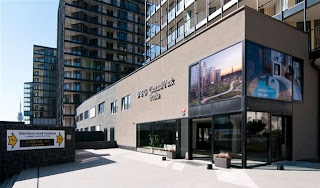Czech Central Banker Janacek Sees No `Immediate' Need for Rate Increase
By Peter Laca - (
©Bloomberg) Sep 8, 2010
Czech central bank board member Kamil Janacek said he sees no “immediate” need to raise interest rates after two colleagues suggested policy makers may consider increases in coming months.
“Monetary policy is set appropriately at this moment,” Janacek, who joined the board in July, said yesterday during an interview in his Prague office. “There certainly isn’t a need to raise interest rates immediately.”
The Ceska Narodni Banka has left its benchmark two-week interest rate at a record-low 0.75 percent, below the European Central Bank’s main rate of 1 percent, since a quarter-point cut on May 6. The central bank lowered the rate by 3 percentage points over the previous two years as the country suffered through its worst recession since the end of communism in 1989.
Board member Eva Zamrazilova said a rate increase should be discussed as soon as possible because low borrowing costs create a “bad allocation of capital,” according to an Aug. 24 interview in the newspaper Lidove Noviny.
Robert Holman, another of the seven policy makers, told Tyden magazine on Aug. 30 that bank will probably raise the main interest rate to 1 percent at the end of this year or at the beginning of 2011.
The Czech economy, where exports account for about 70 percent, last year emerged from the worst recession in two decades. Gross domestic product expanded an annual 2.4 percent in the three months through June, the fastest rate in eight quarters, the statistics office said today.
The annual inflation rate rose to 1.9 percent in July, the highest in 16 months, as the cost of food, tobacco and housing increased.
‘Accommodative’ Policy
Janacek, 67, declined to comment on the timing of the next Czech policy change.
“I don’t have a problem with an accommodative monetary- policy approach, which means changing rates more frequently,” he said. “We have to analyze the situation at a given moment and react in a flexible way that fits the economy best, while keeping the inflation objective in mind.”
The economy “can’t live with rates that are lower than the ECB’s rates for a long time,” Janacek said, and “a period of three or five years would be too long in this respect.”
Signals from the Czech Republic’s main trading partners, mainly Germany, suggest the economy may grow faster next year than the 1.8 percent forecast by the central bank, Janacek said. The economy shrank 4.1 percent in 2009.
German Growth
While some have forecast a slowdown in Germany, where the economy expanded at the fastest rate in two decades during the second quarter, Janacek said he expects growth in Asia and South America to drive demand for European exports.
“Some colleagues in Germany, who have been known for having skeptical forecasts in the past, are now quite optimistic about the state and the outlook for German economy,” he said. “This would be very positive news for the Czech economy.”
Increasing domestic demand may also provide a boost to the Czech economy, Janacek said. Household consumption declined during the recession as the unemployment rate rose to 9.9 percent in February. The rate fell to 8.6 percent in August, data released today by the Labor Ministry showed.
Household consumption grew 0.8 percent in the second quarter, the statistics office said, while new-car registrations rose 6.6 percent from a year earlier in the first eight months of the year, according to the Car Importers Association.
“Car production and car sales are cyclically very sensitive,” Janacek said. “This could be an indication that households may be starting to spend more.”
Commenting on the koruna exchange rate, Janacek said the currency has stabilized “very close to levels that were expected” by the central bank, after gaining 3.7 percent against the euro in July. The koruna traded at 24.721 to the euro as of 12:08 p.m. in Prague.
Follow Me on Facebook












